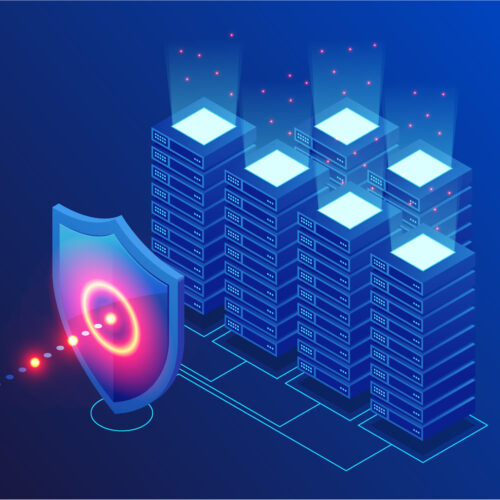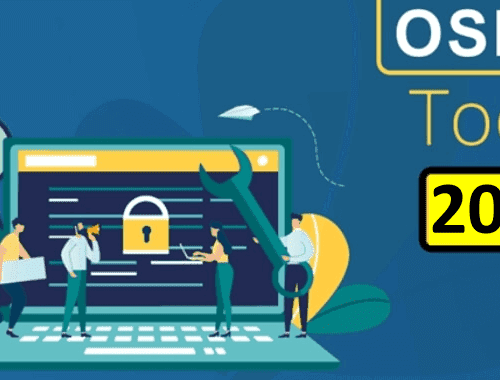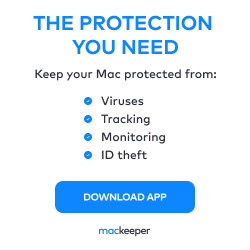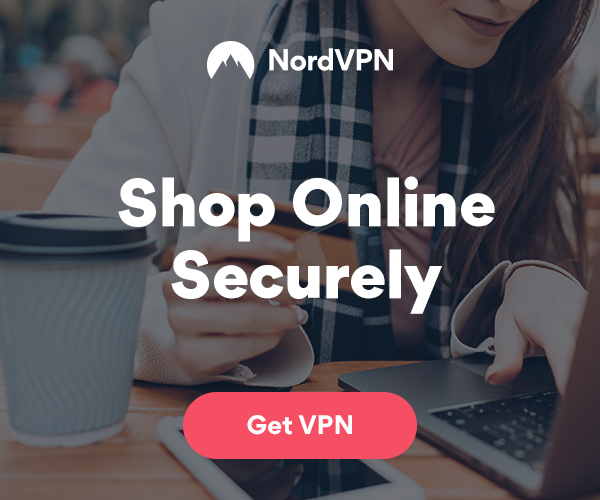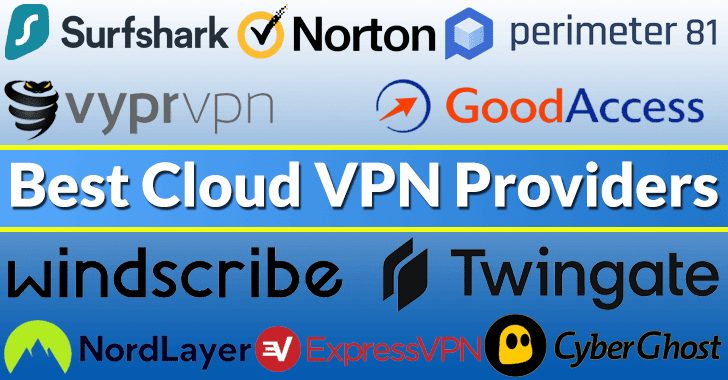
A cloud VPN (Virtual Private Network) provider is a company that offers VPN services through cloud technology. These services allow users to securely connect to the network and access resources as if they were on a private network, even when using public or untrusted networks.
Cloud VPN providers typically offer a variety of Cloud VPN Companies that can be customized to meet the specific needs of an organization or individual.
These solutions may include site-to-site VPNs, which connect multiple locations within an organization, remote access VPNs, which allow employees to securely access resources from remote locations, and VPN-as-a-Service, which is a fully managed VPN service that is hosted in the cloud.
One of the main advantages of using a cloud VPN company is that it eliminates the need for an organization to maintain and manage its own VPN infrastructure. This can save time and resources, as well as reduce the risk of security breaches.
It is important to note that when selecting a cloud VPN provider, it is important to consider the level of Cloud security and privacy offered by the service, as well as the provider’s compliance with relevant regulations and industry standards.
Is paid VPN better than a free one?
Paid VPNs generally offer more features, better security, and more reliable service than free VPNs. Paid VPNs have the resources to invest in robust infrastructure and employ teams of experts to continuously monitor and improve their service.
Free VPNs, on the other hand, often have limited resources and may not be able to provide the same level of service.
Additionally, free VPNs may generate revenue through less desirable means such as selling user data or displaying ads.
Therefore, if you value privacy and want to ensure a high-quality VPN service, it is generally better to choose a paid VPN.
Should I spend money on a VPN?
Whether or not to spend money on a VPN depends on your specific needs and how you plan to use the VPN service.
If you are looking for a VPN to improve your online security and privacy, a paid VPN service may be a good investment.
Paid VPNs typically offer more advanced features and better security than free VPNs, and they do not rely on revenue from selling user data or displaying ads.
Additionally, paid VPNs often have more resources to invest in robust infrastructure and employ teams of experts to continuously monitor and improve their service.
If you are a casual user and only need a VPN for occasional use, a free VPN service may be sufficient for your needs.
However, it’s important to remember that free VPNs may have limitations in terms of speed, data usage and other features.
If you are an organization and you plan to use Cloud VPN for business, it is important to consider a paid VPN service that offers the required level of security and compliance, as well as the scalability to accommodate your organization’s growth.
Ultimately, whether or not to spend money on a VPN depends on your specific needs and the level of security and privacy you require.
It’s important to research different VPN options and consider features, security, privacy, and cost before deciding.
How do VPNs make money?
VPNs typically make money through one or more of the following methods:
>Subscription-based pricing: This is the most common method used by Cloud VPN providers for business. Users pay a monthly or annual fee for access to the VPN service.
Some providers offer different pricing plans with different levels of service, such as a free version with limited features and a paid version with more advanced features.
>Advertising: Some free VPNs make money by displaying ads to users while they are connected to the VPN.
However, this method is not commonly used by paid VPNs as it can be seen as a violation of user’s privacy.
>Affiliate programs: Some VPN providers offer an affiliate program that pays commissions to individuals or organizations that refer new customers to the service.
>Premium add-ons: Some VPN providers offer additional services or features that are not included in the basic subscription, such as dedicated IP addresses or a kill switch, which can be purchased for an additional fee.
>Business to Business (B2B): Some Cloud VPN solutions sell their VPN service to businesses, who in turn use it to offer VPN service to their own customers.
10 Best Cloud VPN Providers 2023
| Best Cloud VPN Providers | Key Features |
|---|---|
| 1. Perimeter 81 | 1. Transmitted data are encrypted. 2. Real-time monitoring and reporting. 3. Network segmentation. |
| 2. GoodAccess | 1. Identity-driven access control. 2. Multi-location connectivity. 3. Load balancing. 4. Intrusion detection and prevention. 5. Access from 14 different time zones. |
| 3. NordLayer | 1. Site-to-site private networks. 2. Multi-Site, Users-to-Site, Users-to-Users, Users-to-Cloud. 3. Bypasses network censorship. 4. Support for multiple VPN protocols. 5. Automatic kill switches feature to protect your data in case the VPN connection is lost. 6. Ability to connect up to 6 devices simultaneously. |
| 4. VyprVPN for Business | 1. Advanced encryption protocols 2. Kill switch to protect against accidental disconnections 3. Web-based management portal for monitoring and managing VPN connections. 4. Available on multiple platforms. 5. No third-party provider, so no data sharing |
| 5. CyberGhost | 1. Strong encryption and security protocols to protect user data and online privacy 2. Ability to hide user IP addresses 3. Wide range of server locations to access content that may be blocked or restricted in certain countries 4. Automatic kill switch to protect against accidental IP leaks 5. Simple and user-friendly interface 6. No-logging policy 7. Support for multiple devices 8. Automatic connection to the best available server. 9. Automatic HTTPS redirection |
| 6. Surfshark | 1. A large network of servers around the globe. 2. Strong encryption to protect your online activity and personal information. 3. Ability to connect an unlimited number of devices with a single subscription. 4. Automatic kill switch to protect your network connection if the VPN connection is lost. 5. Additional security features like CleanWeb, BlindSearch and Multi-Hop VPN. |
| 7. Norton Secure VPN | 1. Access to restricted or blocked websites. 2. Automatic connection and kill switch. 3. Compromised and Insecure Network Detection. 4. Shields data from advertisers. 5. Anonymizes sensitive data without having to lose local services access |
| 8. Twingate | 1. Software-defined perimeter for secure connection. 2. Granular access controls. 3. Cloud-based management console 4. End-to-end encryption of data transmitted over the VPN connection. 5. Cross-platform support 6. Integration with popular identity providers. |
| 9. Windscribe ScribeForce | 1. Encryption of the nework connection. 2. Routing of nework connection through a secure VPN server 3. Ability to access restricted content 4. Built-in ad and tracker blocker (Scribe) 5. Real-time Optimized Browsing Enhanced Routing Technology 6. Kill switch feature 7. Multiple protocols support (OpenVPN, IKEv2, SOCKS) |
| 10. Express VPN | 1. Wide network of servers in multiple locations around the world 2. Strong encryption using a variety of protocols 3. No-logs policy 4. Automatic kill switch 5. Support for a wide range of devices and platforms 6. Allows accessing cloud-based applications and data securely globally. |
10 Best Cloud VPN Providers 2023
- Perimeter 81
- GoodAccess
- NordLayer
- VyprVPN for Business
- CyberGhost
- Surfshark
- Norton Secure VPN
- Twingate
- Windscribe ScribeForce
- Express VPN
1. Perimeter 81
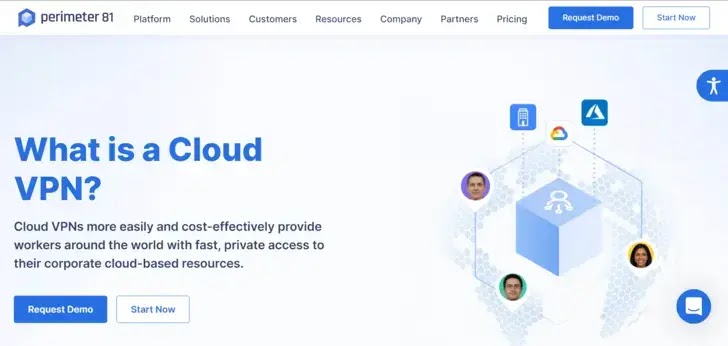
Perimeter 81 is one of the best and award-winning cloud VPN providers that allows users to securely access their networks and resources from anywhere in the world.
It uses advanced encryption protocols to protect data and ensure secure connections over the network.
It also includes features such as network segmentation, user and device management, and real-time monitoring and reporting.
It is designed for organizations of all sizes and can be easily integrated with existing IT infrastructure.
Perimeter 81 works by creating a secure, encrypted connection between a user’s device and the company’s network.
This connection, called a VPN tunnel, is established using protocols such as OpenVPN, IKEv2, and L2TP/IPSec.
These protocols encrypt data as it travels over the nework, making it difficult for anyone to intercept or read the information.
User and device management tools allow administrators to control who can access the VPN and what resources they can access.
Once a user is connected to the VPN, they can access the company’s resources as if they were on the same local network.
This allows employees to work remotely, access sensitive data, and collaborate with colleagues as if they were in the office.
Perimeter 81 also provides a web security gateway that acts as an entry point to the company’s network and resources and provides additional security features such as a firewall, intrusion detection and prevention, and threat intelligence.
The network segmentation feature of this cloud VPN service allows administrators to divide the VPN into different segments, each with its own set of rules and access controls. This helps to prevent unauthorized access and protect sensitive data.
| Pros | Cons |
|---|---|
| Enables remote access. | Limited number of server locations. |
| Advanced encryption protocol. | Dependence on network connection. |
| Easy to use and manage. | Limited number of protocols. |
| Highly scalable. | Pricing is a bit higher. |
| Provides compliance along with security. |
2. GoodAccess Cloud VPN
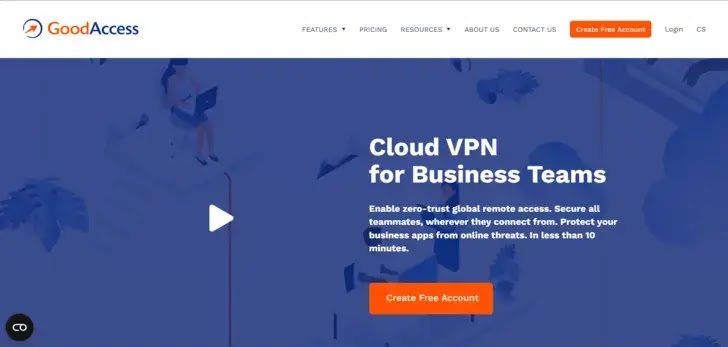
GoodAccess, the best cloud VPN solution, offers services that allow users to securely access their organization’s network from remote locations using the nework.
It can be used to connect multiple branch offices and remote workers to the central office, creating a secure and private WAN connection.
This allows employees to work remotely and access the resources they need to do their job, while also keeping the organization’s network secure.
It also provides a way for companies to provide secure access to their partners and clients.
When a user wants to connect to their organization’s network using GoodAccess Cloud VPN, they first need to install the VPN client software on their device.
After the installation is complete, the user will need to enter their login credentials to connect to the VPN server.
Once connected, the VPN client software establishes a secure connection to the VPN server, creating a virtual “tunnel” between the user’s device and the organization’s network.
All data passing through this tunnel is encrypted, making it difficult for unauthorized users to intercept and read.
With the VPN connection established, the user can now access resources on the organization’s network as if they were physically connected to it. This includes access to internal websites, file servers, and other network resources.
The GoodAccess Cloud VPN service can also include additional security features like a firewall, intrusion detection and prevention, and load balancing to protect the organization’s network.
These features can be managed and configured by the organization’s IT administrator.
| Pros | Cons |
|---|---|
| Secure and encrypted connections. | Complex setup and configuration. |
| 35+ worldwide gateway locations. | High bandwidth requirements. |
| Policy-based access logs. | Unsuitable pricing for smaller teams. |
| Accessible via desktop and mobile app. | |
| Secure remote access. | |
| Increased security and productivity. | |
| Highly scalable. |
3. NordLayer Cloud VPN
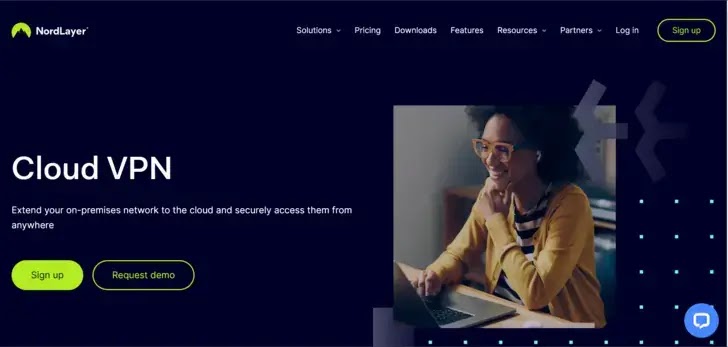
Nordlayer is a cloud VPN provider that encrypts users’ internet traffic and hides their IP addresses, allowing them to browse the web anonymously and securely.
NordVPN offers a cloud VPN services that allows users to securely connect to the internet from any location.
It also provides a secure connection for remote workers and allows access to restricted websites and services.
Additionally, NordVPN Cloud VPN for business can be used to protect personal data when using public WiFi and to bypass internet censorship.
Nordlayer Cloud works by routing your internet connection through one of NordVPN’s servers, which are located in various countries around the world.
This process encrypts your data, making it unreadable to any third party who might be intercepting it.
When you use Nordlayer Cloud, your device connects to one of NordVPN’s servers using a secure VPN protocol, such as OpenVPN or IKEv2.
Once connected, all of your internet traffic is routed through the VPN server, which acts as a middleman between your device and the internet.
Because the VPN server has its own IP address, any websites or services you access will see the VPN server’s IP address instead of your own.
This makes it much more difficult for anyone to track your online activities or target you with personalized ads.
In addition, Nordlayer Cloud uses AES-256-GCM encryption, which is considered one of the most secure encryption methods available today.
This encryption ensures that your data remains private and secure even if it’s intercepted by hackers or other malicious actors.
| Pros | Cons |
|---|---|
| Global access to the VPN servers. | The monthly pricing model is expensive. |
| High level of privacy and security. | Slower internet speed. |
| 24/7 customer support | Less user-friendly interface. |
| Multiple VPN protocols provide flexibility. | |
| Wide range of servers to choose from. |
4. VyprVPN for Business
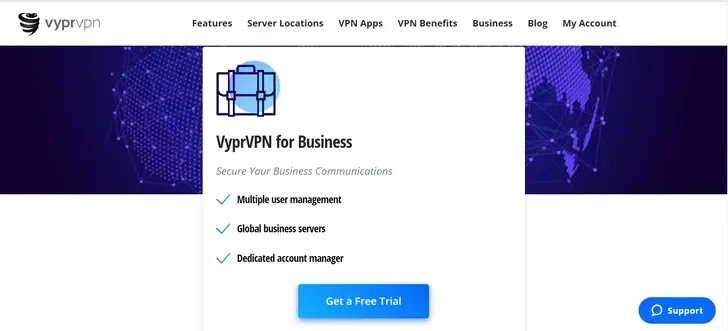
VyprVPN for Business Cloud is a cloud VPN company , designed for businesses.
It allows employees to securely access company resources and data from any location, using encryption to protect against unauthorized access.
It works by routing a business’s internet traffic through a secure, encrypted VPN tunnel.
This tunnel is established between the employee’s device and a VyprVPN server, which is managed and operated by Golden Frog, the company behind VyprVPN.
When an employee connects to the VPN, their device is assigned a new IP address, which makes it appear as if they are located in the same location as the VPN server.
This allows employees to access company resources and data that may be restricted to certain geographic locations.
In addition, all internet traffic passing through the VPN tunnel is encrypted, making it difficult for anyone to intercept or access the data.
This is especially important when employees are using public Wi-Fi or other unsecured networks.
It also comes with a web-based management portal, which allows administrators to monitor and manage VPN connections, as well as create and manage user accounts.
This helps to ensure that only authorized employees have access to company resources and data.
The service also includes a kill switch, which automatically disconnects the employee’s internet connection if the VPN connection is lost.
This helps prevent sensitive data from being exposed if the VPN connection is compromised.
VyprVPN for Business Cloud is designed to be easy to deploy and manage and can be scaled to meet the needs of businesses of any size.
It offers various subscription options that can be tailored to suit different business needs.
| Pros | Cons |
|---|---|
| Easy deployment | Subscription based service |
| Scalability | Limited number of server locations |
| Globally accessible by employees. | May affect internet connection speed. |
| Supports Windows, Mac, iOS, Android, and Linux. | |
| Secured and encrypted connection. |
5. CyberGhost

CyberGhost is a cloud VPN solution that allows users to securely connect to the internet by routing their internet connection through a server operated by CyberGhost.
This can help to protect users’ online privacy and security by encrypting their internet connection and hiding their IP address.
Additionally, CyberGhost Cloud VPN allows users to access content that may be blocked in their geographic location by routing their connection through a server in a different location.
Encryption is the process of converting plain text into code that can only be deciphered with a key. In the case of CyberGhost Cloud VPN, the encryption process is done by using a secure protocol such as OpenVPN, L2TP/IPSec, or IKEv2, which is then sent to the VPN server.
CyberGhost Cloud VPN solution allows users to choose from a wide range of server locations, so they can access content that may be restricted or blocked in their geographic location. This is known as “geo-spoofing.”
| Pros | Cons |
|---|---|
| Strong encryption and security features. | Connection issues in certain locations. |
| Ability to bypass geographic restrictions and access blocked content | Ad tracker and blocking are paid. |
| No-logging policy to protect user privacy. | Customer service is not always responsive. |
| User-friendly interface and easy to set up | |
| Support for multiple devices and operating systems. | |
| Ad and tracker blocking. |
6. Surfshark cloud VPN
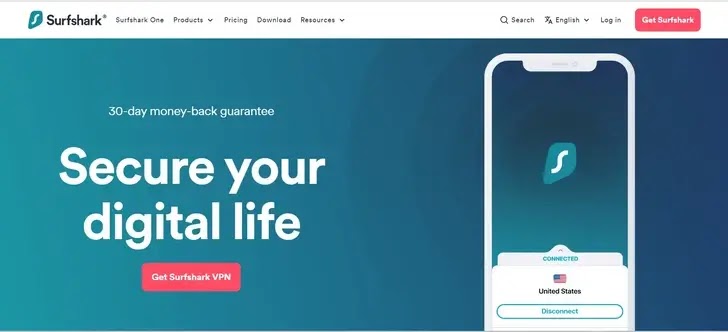
Surfshark is a cloud VPN provider that allows users to securely connect to the internet by encrypting their internet connection and hiding their IP address.
This helps to protect users’ online privacy and security, and can also be used to access geo-restricted content.
Surfshark Cloud VPN, in particular, allows users to connect to one of its VPN servers from any device with internet access, including computers, smartphones, and tablets.
When you connect to Surfshark Cloud VPN service, your device is assigned a new IP address, which can be located in different parts of the world.
This allows you to access websites and services typically blocked in your region.
The VPN tunnel created by Surfshark is protected by strong encryption algorithms to keep your online activity private and secure from hackers, ISPs, and government agencies.
The encryption protocols used by Surfshark include OpenVPN, IKEv2, and Shadowsocks.
Additionally, Surfshark Cloud VPN also provides additional security features like kill-switch, CleanWeb, blind search and Multi-Hop VPN for added security.
This makes it harder for hackers or other malicious actors to intercept your internet traffic and steal your personal information.
Overall, Surfshark functions as a VPN service that encrypts your internet connection, hides your IP address, and allows you to access geo-restricted content while keeping your online activity private and secure.
| Pros | Cons |
|---|---|
| Affordable pricing | Limited server locations compared to some other VPNs |
| Easy to use and set up | Slower connection speeds |
| No-logging policy | Customer support is not very responsive. |
| Ability to unblock geo-restricted content | VPN occasionally disconnects |
| Provides strong security and privacy protection. |
7. Norton Secure VPN
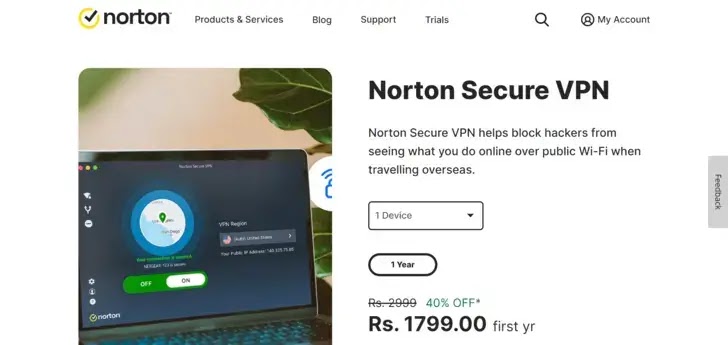
Norton Secure VPN, a cloud VPN provider, helps protect online privacy and security by encrypting the internet connection and hiding the IP address.
It also allows one to access restricted or blocked websites and content.
When using Norton Secure VPN on the cloud, the service is delivered through a network of servers that are hosted on cloud infrastructure.
This allows for greater scalability and flexibility, as the number of users and demand for the service can be easily adjusted by adding or removing servers as needed.
When a user connects to the VPN service, their internet traffic is routed through one of Norton’s cloud-hosted servers, which encrypts the traffic and assigns a new IP address to the user.
This helps protect the user’s online identity and keeps their browsing activity private.
This cloud-based delivery model also allows for easy access to the service from anywhere, as long as the user has internet access.
It also enables the user to use the VPN service on multiple devices, such as a laptop, tablet, and smartphone, without having to install software on each device.
Norton Secure VPN uses industry-standard encryption technology to protect the user’s internet connection when using the service in the cloud.
The specific encryption algorithm used is AES (Advanced Encryption Standard) with a 256-bit key.
It can prevent the use of ad tracking technologies, which will prevent advertisers and other companies from tracking users’ online activities.
This results in the reduction of targeted ads that follow you as you browse the internet.
| Pros | Cons |
|---|---|
| Greater scalability, flexibility, and accessibility. | It may slow down the internet connection speed. |
| Multi device protection. | Not compatible with all devices |
| Anonymous browsing. | Expensive than other VPN services |
| Encrypted internet connection. | A limited number of server locations compared to other VPN services. |
| On-the-go access. | |
| Doesn’t track and save browsing activities. | |
| Reduced targeted ads. |
8. Twingate
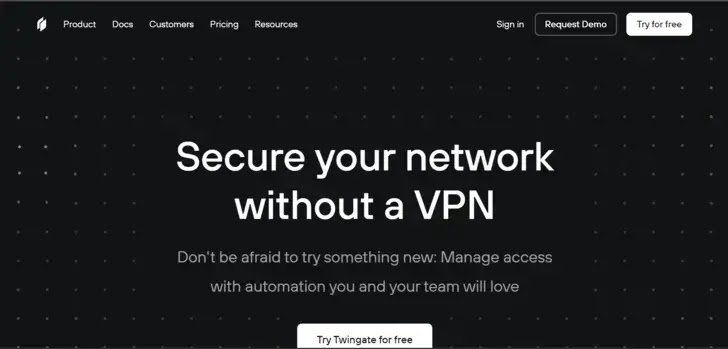
Twingate is a cloud VPN solution that works by creating a secure, encrypted connection between the user’s device and the target network.
It allows users to securely connect to their remote networks and resources.
This connection is established through a Software-Defined Perimeter (SDP) model, which uses a series of gateways and access nodes to provide secure access to the target network.
When a user attempts to connect to a remote network through Twingate, the connection request is first sent to a Twingate gateway.
The gateway then verifies the user’s identity and access rights, and if the user is authorized, it establishes a secure, encrypted connection to an access node on the target network.
The access node acts as a bridge between the user’s device and the target network, allowing the user to access the resources on the target network as if they were connected directly to it.
The connection between the user’s device and the access node is encrypted, ensuring that the data being transmitted is secure and protected from eavesdropping.
Twingate also provides a cloud-based management console for administrators, which allows them to monitor and manage the VPN connections.
This includes the ability to view active connections, see the status of the network, and manage access rights for users.
| Pros | Cons |
|---|---|
| Easy to use and set up. | Requires paid subscription to use it. |
| No need for traditional VPN client software. | Limited functionality compared to traditional VPNs. |
| Available for Windows, MacOS, Linux, iOS, and Android. | Minor glitches occur frequently on windows. |
| Multiple integrations option. | |
| Resource-level Split Tunneling. |
9. Windscribe ScribeForce
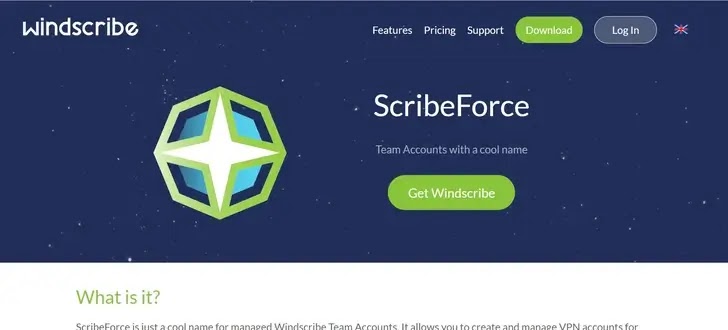
Windscribe is a cloud VPN provider that encrypts the internet connection, making it more secure and private. It also allows to access restricted content and websites by connecting to a server in a different location.
Using Windscribe VPN, devices establish a secure connection to one of Windscribe’s VPN servers.
This connection is established using a protocol such as OpenVPN or IKEv2, which encrypts all of the data that travels between your device and the VPN server.
Windscribe VPN also offers a built-in ad and tracker blocker feature called “Scribe,” which can block unwanted ads, trackers, and malware from your web pages, which can help increase browsing speed and protect privacy.
It also has a feature called “R.O.B.E.R.T.” that blocks unwanted content by using a machine learning model that can tell the difference between malicious and benign websites.
This feature can block all unwanted content and keep you safe.
It offers advanced options such as WireGuard support, customizable split tunneling on both desktop and mobile devices, the ability to change your MAC address to reduce tracking, flexible auto-connect rules, and a command line interface for automation through scripts.
| Pros | Cons |
|---|---|
| Strong encryption to protect your data | Limited server locations |
| It can block ads and trackers. | Limited data usage on free version |
| Supports various protocols. | Interface is a bit complex |
| Good customer support | Issues with connection stability |
| 10GB free data allowance | |
| Powerful extension for chrome, firefox, and opera. |
10. Express VPN
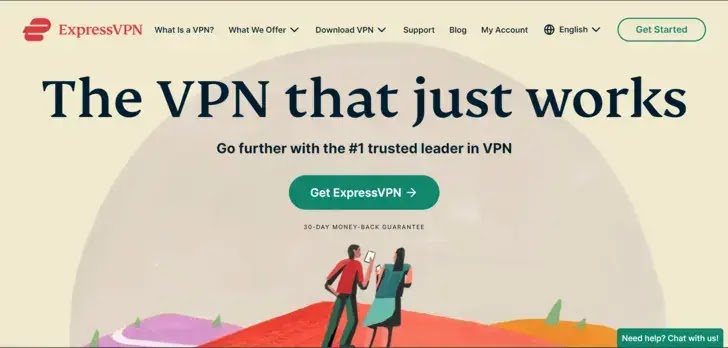
ExpressVPN, a cloud VPN provider, is a service that allows users to securely access cloud-based applications and data from anywhere in the world.
It uses a virtual private network (VPN) to encrypt data and protect users’ online activities from hackers and other malicious actors.
With ExpressVPN Cloud, users can securely access cloud-based services such as Microsoft 365, Salesforce, and Google Drive, among others.
It is also compatible with multiple platforms such as Windows, Mac, iOS, and Android.
When a user connects to ExpressVPN Cloud, the VPN software on their device establishes a connection with a server in a location of the user’s choice.
Once connected, the user’s internet traffic is routed through this server, and the VPN encrypts the traffic using a variety of protocols like OpenVPN, IKEv2, and L2TP.
ExpressVPN Cloud also ensures that the user’s connection is secure when they are on public Wi-Fi networks.
When a user connects to a public Wi-Fi network, the VPN encrypts their connection, making it difficult for anyone on the same network to intercept the user’s data.
ExpressVPN Cloud does not keep any logs of users’ online activity, which ensures that users’ online activities remain completely private.
| Pros | Cons |
|---|---|
| Compatible with multiple platforms. | Limited configuration options for advanced users |
| Strong security and privacy features | Does not support peer-to-peer (P2P) file sharing |
| Fast connection speeds | Slightly more expensive than some other VPN services. |
| Easy to use software | |
| Wide network of servers |
Frequently Asked Question
What are the disadvantages of VPN?
VPNs have several advantages that make them popular among users, such as improved security and privacy, but they also have some disadvantages that should be taken into consideration:
>Speed and performance: Using a VPN can slow down internet speeds and reduce performance due to the additional encryption and routing of traffic through the VPN server. This can be particularly noticeable when streaming video or playing online games.
>Limited server locations: Some VPN providers have a limited number of server locations, which can restrict the availability of content and services.
>Limited device compatibility: Some VPNs may only work on certain devices or operating systems, which can be a disadvantage for users with multiple devices.
>Complexity: Setting up and using a VPN can be more complex than using a regular internet connection, particularly for less technical users.
>Cost: While there are free VPNs available, some of them may not offer the same level of features, security and reliability as paid VPNs. And for a business, the cost of a VPN service can be high and may require additional expenses like maintenance and support.
>Logging and Privacy: Not all VPNs are created equal, some of them may keep logs of user’s online activity and may not have strict privacy policies. It’s important to research a VPN provider before signing up to ensure that it aligns with your privacy expectations.
>Legal and Compliance: Some countries have laws and regulations that restrict the use of VPNs. It’s important to be aware of the laws and regulations of your country before using a VPN service.
>Dependency: Relying on a VPN service can make your internet usage dependent on that service and if the service goes down or becomes unavailable, it could affect your online experience.
Do VPNs slow down your internet?
Using a VPN can potentially slow down your internet connection. This is because when you use a VPN, your internet traffic is routed through an additional server before reaching its final destination. This extra step in the process can add latency, or delay, to your internet connection.
Additionally, the encryption process used by VPNs can also add some overhead and slow down the connection.
The extent to which a VPN will slow down your internet connection depends on a variety of factors, such as the distance between your device and the VPN server, the number of users connected to the server, and the capacity of the VPN server.
In general, the further the distance and the more congested the server, the greater the potential for a slower connection.
In general, while a VPN can slow down your internet connection, it’s usually not significant enough to be noticeable for most users.
However, if you’re using a VPN for activities that require a high-speed connection, such as streaming video or playing online games, it’s possible that you’ll experience some reduction in speed.
Does VPN hide IP?
Yes, VPN (Virtual Private Network) technology is designed to hide your IP address. When you connect to a VPN, your internet traffic is routed through an encrypted tunnel to a VPN server.
The VPN server then assigns you a new IP address, which is used to mask your true IP address and make it appear as if you are located in a different location.
This allows you to remain anonymous and prevent your online activities from being tracked.
However, it’s important to note that not all VPNs are created equal, and some VPNs may not provide complete anonymity. Some VPNs may keep logs of user’s online activity and may not have strict privacy policies.
Therefore, it’s important to research a VPN provider before signing up to ensure that it aligns with your privacy expectations.
Does VPN protect you from hackers?
VPNs (Virtual Private Networks) can provide an additional layer of security and protect you from hackers, but they are not a complete solution.
VPNs encrypt your internet traffic and route it through a secure tunnel to a VPN server, making it more difficult for hackers to intercept and steal your sensitive information.
However, VPNs do not offer protection from all types of cyber risks. They cannot protect against malware or phishing attacks, for example.
Additionally, if a hacker is able to gain access to your device or the VPN server, your device could still be compromised, so it’s important to have up-to-date anti-virus and malware protection on your device and to not use public wifi or networks you don’t trust.
It’s also important to note that not all VPNs are created equal, and some VPNs may not provide the level of security you expect. Some VPNs may keep logs of user’s online activity and may not have strict privacy policies.
Therefore, it’s important to research a VPN provider before signing up to ensure that it aligns with your security expectations.
In summary, a VPN can provide an additional layer of security, but it’s not a complete solution and should be used in conjunction with other security measures to protect yourself from hackers.
